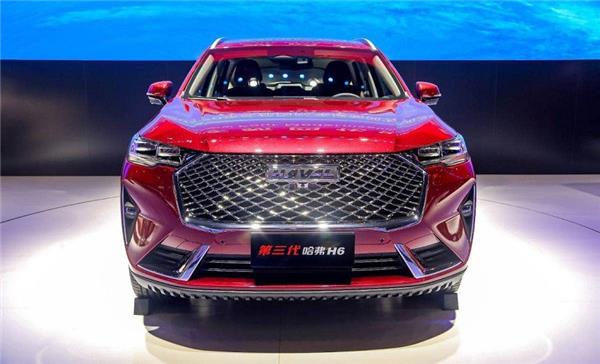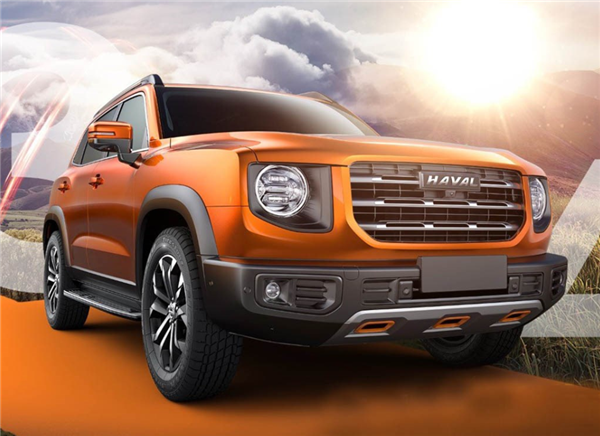Something about GWM’s Lemon platform
As a response to rapid technology development and changing market demands, many players in automotive industry decided to become a technology company, like Continental. So did GWM.
At the beginning of its thirties, Great Wall Motors (GWM) officially announced its ambition to be a technology company and lead the worldwide industry revolution in the future. With this target in mind, the best-selling SUV producer in China recently launched three technology brands, namely Lemon, Tank and Coffee Intelligence to show its profound technology accumulation, forward-looking technology layout, and innovative technology concepts. Today, we are going to talk about the Lemon.
What is Lemon?
According to GWM’s definition, the Lemon is a global high-intelligence modular technology platform that boasts high performance, high safety, and lightweight technology. Under the principal of over-investment in R&D, GWM has invested RMB 20 billion ($2.6 billion) and integrated global high-quality resources to develop the Lemon and the Tank platforms.

GWM "Lemon" Global High-intelligence Modular Technology Platform
The Lemon, whose name seemingly has nothing to do with technology, will endow vehicles with fine craftsman quality of lightweight technology, high performance and high safety, which are in tune with the fruit's unique quality of portability, freshness, high nutritional value, and global popularity.
To be specific, thanks to the extensive use of high-strength steel, the weight of vehicles built on the Lemon platform will be significantly reduced. Besides, the platform can also reduce body pitch angle by 50%, steering interference force arm by 16%, steering accuracy by 16%, body lateral stiffness by 15% to achieve better performance and body structure.
The Lemon platform boasts ultra-high scalability and diverse power adaptation capabilities. From the very beginning of its development, the automaker has been considering various requirements of different vehicle types. Such models as SUV, sedan and MPV can be made on the Lemon platform, which can offer vehicles a wheelbase between 2650mm and 3005mm, vehicle length between 4200mm and 5100mm, vehicle width between 1830mm and 1975mm.
As to the powertrain, the platform can be adaptive to four powertrain solutions, namely internal combustion engine (ICE), multiple hybrid power (series-parallel DHT, P2, and P2+P4), battery electric vehicle (BEV), and fuel cell electric vehicle (FCEV).
The vehicles built on the "Lemon" platform is claimed to have industry-leading fuel-efficient power. According to GWM’s plan, the Lemon-based vehicles will have a thermal efficiency of 41% for traditional engines and 42% for hybrid powertrains in 2022, which will increase to 51.5% in 2025.
If vehicles are equipped with the second-generation hydrogen fuel cell power system, they are set to have a driving range up to 1,100 km and can accelerate from 0 to 100 km in 4.56 seconds, which is said to be better than other products from the same category.
The platform is also user-centered with a concept of "comprehensive safety", which will put more weight on occupant safety, vehicle safety as well as pedestrian safety, to make layout planning of diverse models, deep focus, technology foresight, and professional leadership really happen.
Which models will be built on the Lemon?
As we have said, the platform supports four powertrain options. The automaker expects that the first-generation FCEV based on the Lemon will have a driving range of 900KM and nails 0-100KM in 9.9 seconds in 2021 while the goals for 2023 are respectively 1100KM and 4.56 seconds. For BEV models, the range can be up to 700KM while the time for 0-100KM acceleration can be 4.4 seconds.
Ahead of these models, the third-generation Haval H6, built on the Lemon, has made its public debut recently at the Chengdu Motor Show 2020. With a starting price at RMB122,000, the new Haval H6 makes great improvement in styling, size and functions.

New-generation Haval H6
As to the new model’s dimensions, the wheelbase is 2,738mm while the length is 4,653mm, longer than that of the existing H6. The Lemon-based H6 is powered by the a 1.5-liter petrol engine with a maximum power output of 169 hp, or 2-liter engine with a maximum power output of 224hp.
Besides, the Haval H6 is equipped with 9DCT/9HDCT, which is claimed to be the world’s first transverse 9-speed wet dual-clutch transmission. Compared with other mainstream transmissions, the fuel consumption per hundred kilometers is decreased by 7% for 9DCT and 70% for 9HDCT in the fuel consumption test as specified in related national standard. We learned that, the model gained more than 1,000 orders on the first day of its presale.
The Haval Dagou (Big Dog in English, once code-named B06) is the first all-new SUV to be made on the Lemon. The SUV measures 4,620 mm long, 1,890 mm wide and 1,780 mm high while it has a wheelbase of 2,738 mm.

Haval Dagou
It is reported that at the early stage, the Dagou will carry a 1.5T turbocharged engine with a maximum power of 169hp and feature a four-wheel drive system. In the future, the automaker expects to launch a version equipped with 2.0-liter engine.
Why did GWM launch new platforms?
Currently, automakers adopt “platforms” to offer standard design in such parts as the chassis, drivetrain, steering, and suspension. So when different types of vehicles share the same platform, automakers can save considerable money and time to build new models. And using the same platform can also facilitate the quality control of vehicles and help to improve production efficiency. It seems that modular platforms have become a proof of competence, so the Lemon can show GWM’s ability in forward engineering, which is pivotal to a technology company facing fierce competition.
In 2019, China’s auto sales fell for a second straight year. Because COVID-19 dented market demand, vehicle sales in the biggest auto market saw a decline of 12.7% for the first seven months, though the market has logged gains for four consecutive months.
Market doesn’t discriminate. Joint ventures in China also need to find way out, which will exacerbate local brands’ pressure. For example, FAW-VW launched its sub-brand JETTA, which is expected to close the gap between the entry-level segment and the volume segment. Of course, there are many foreign brands which choose to cut price for attracting more customers, thus weakening local brands’ competitiveness in price.
Apart from complicated external factors, GWM’s own issues also need solutions. Even though the automaker’s annual sales has exceeded 1 million for four successive years, sales have been stagnating (1.074 million units in 2016, 1.07 million in 2017, 1.053 million in 2018, 1.06 million in 2019) while Geely’s 2018 sales were more than 1.5 million. Since it is hard to achieve the sales milestone of 1.5 million or even 2 million, it is sensible to invest more in R&D and vehicle platforms, as new platforms can boost its product competitiveness and increase profitability.

